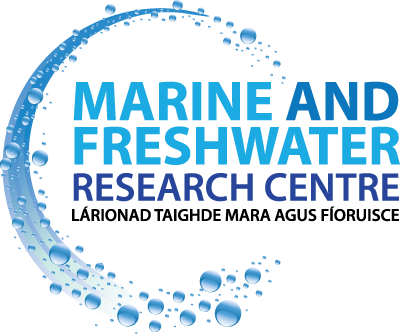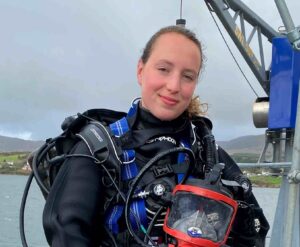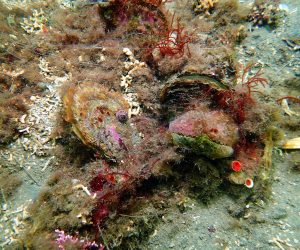Learning to dive at the age of four gave me an entry ticket into an entirely new and unfamiliar world brimming with life. Countless days spent playing near the oceanfront kindled my interest and fortified my affinity for the sea. In the following years, I unintentionally acquired skills and experience, working at the Aquarium Piran, volunteering with the IWDG, and conducting undergraduate research at the MFRC, which provided exceptional prospects and tested and advanced my research expertise through extensive logical thinking, planning, and execution.
I finalised my undergraduate studies in 2023, receiving an Honours Bachelor’s Degree in Applied Freshwater and Marine Biology from the ATU. During the fourth year, I investigated the effects of plastic pollution on the depuration rate of blue mussels (M. edulis), aiming to compare the concentration levels of non-organic particles between subjects from a high-pollution site and mussels harvested at a Class A site, cultured for human consumption. The study objectives were to determine the microplastic concentrations within the mussels before and after depuration, to conclude whether extended depuration time in a controlled laboratory setup decreases the microplastic concentration in mussels, and to compare the microplastic concentrations of polluted and Class A site mussels at predetermined periods – 24, 48, 72, and 168 h post-exposure.
As a PhD researcher, I have been working on native oyster restoration, Oyster Information and Scientific Restoration of Ecosystems of Conamara (OISRE) project, funded by the IRC Enterprise Partnership Scheme. In collaboration with Udaras Na Gaeltachta, I will map the extent of native oyster beds in Kilkieran and Bertraghboy Bay, define their biodiversity and faunal assemblages, complete recolonisation trials, creating sanctuaries and sustainably managed sites, and finally, establish food web dynamics of natural native oyster habitats. Through seabed and transect surveys, removal quadrat surveys, translocation and cultch trials, this project will provide ecological indicators of success to inform restoration practices and help repopulate previously damaged native oyster populations across Europe.


